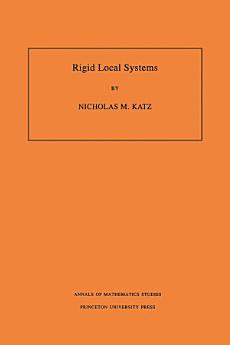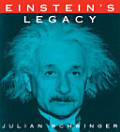Rigid Local Systems
msi 2016 · Princeton University Press
E-book
219
Pages
family_home
Éligible
info
reportLes notes et avis ne sont pas vérifiés. En savoir plus
À propos de cet e-book
Riemann introduced the concept of a "local system" on P1-{a finite set of points} nearly 140 years ago. His idea was to study nth order linear differential equations by studying the rank n local systems (of local holomorphic solutions) to which they gave rise. His first application was to study the classical Gauss hypergeometric function, which he did by studying rank-two local systems on P1- {0,1,infinity}. His investigation was successful, largely because any such (irreducible) local system is rigid in the sense that it is globally determined as soon as one knows separately each of its local monodromies. It became clear that luck played a role in Riemann's success: most local systems are not rigid. Yet many classical functions are solutions of differential equations whose local systems are rigid, including both of the standard nth order generalizations of the hypergeometric function, n
F
n-1's, and the Pochhammer hypergeometric functions.
This book is devoted to constructing all (irreducible) rigid local systems on P1-{a finite set of points} and recognizing which collections of independently given local monodromies arise as the local monodromies of irreducible rigid local systems.
Although the problems addressed here go back to Riemann, and seem to be problems in complex analysis, their solutions depend essentially on a great deal of very recent arithmetic algebraic geometry, including Grothendieck's etale cohomology theory, Deligne's proof of his far-reaching generalization of the original Weil Conjectures, the theory of perverse sheaves, and Laumon's work on the l-adic Fourier Transform.
F
n-1's, and the Pochhammer hypergeometric functions.
This book is devoted to constructing all (irreducible) rigid local systems on P1-{a finite set of points} and recognizing which collections of independently given local monodromies arise as the local monodromies of irreducible rigid local systems.
Although the problems addressed here go back to Riemann, and seem to be problems in complex analysis, their solutions depend essentially on a great deal of very recent arithmetic algebraic geometry, including Grothendieck's etale cohomology theory, Deligne's proof of his far-reaching generalization of the original Weil Conjectures, the theory of perverse sheaves, and Laumon's work on the l-adic Fourier Transform.
À propos de l'auteur
Nicholas M Katz is Professor of Mathematics at Princeton University.
Donner une note à cet e-book
Dites-nous ce que vous en pensez.
Informations sur la lecture
Smartphones et tablettes
Installez l'application Google Play Livres pour Android et iPad ou iPhone. Elle se synchronise automatiquement avec votre compte et vous permet de lire des livres en ligne ou hors connexion, où que vous soyez.
Ordinateurs portables et de bureau
Vous pouvez écouter les livres audio achetés sur Google Play à l'aide du navigateur Web de votre ordinateur.
Liseuses et autres appareils
Pour lire sur des appareils e-Ink, comme les liseuses Kobo, vous devez télécharger un fichier et le transférer sur l'appareil en question. Suivez les instructions détaillées du Centre d'aide pour transférer les fichiers sur les liseuses compatibles.






